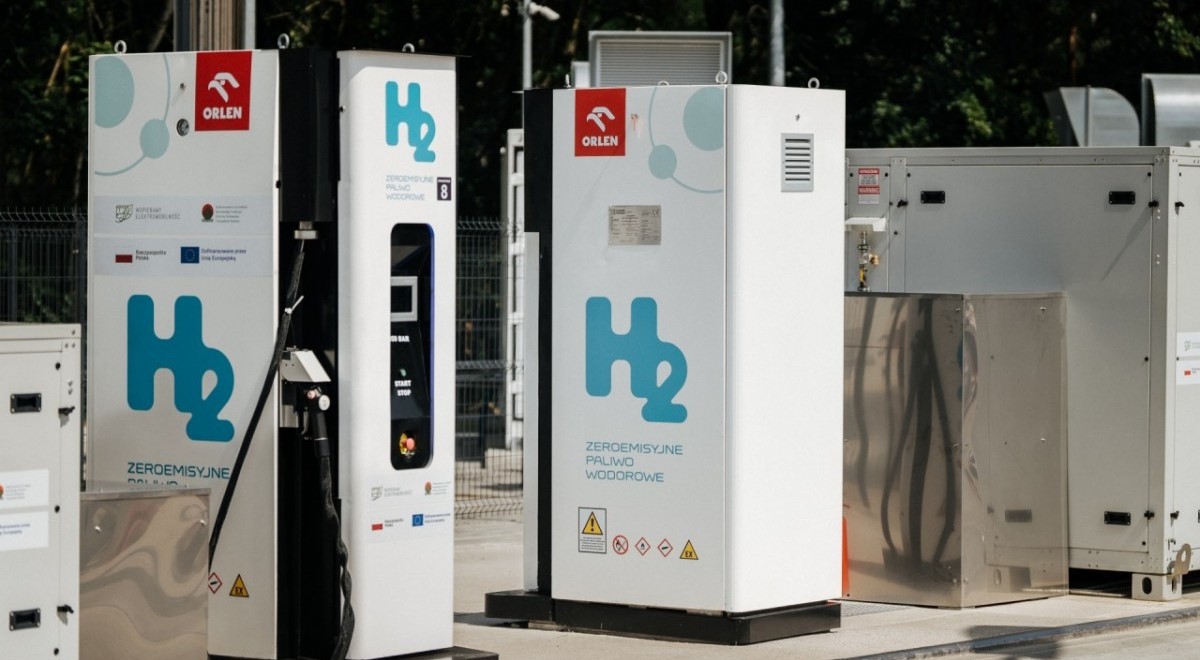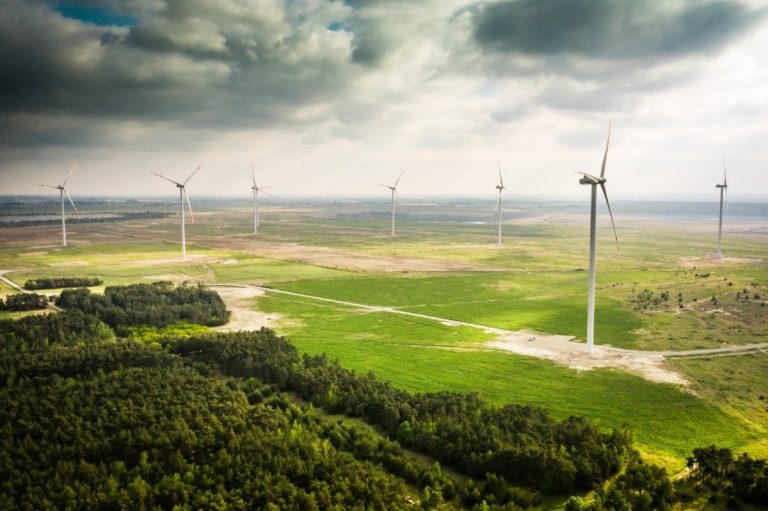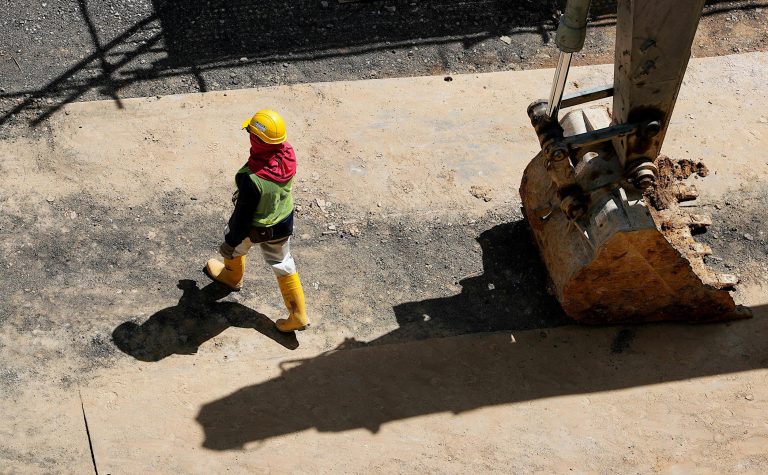Polish state energy giant Orlen opens first public hydrogen refueling station

Polish state energy giant Orlen has opened its first publicly available hydrogen refuelling station. The facility – the first of 100 Orlen plans to open in Poland and neighbouring countries by 2030 – is part of the firm’s efforts to move away from its traditional focus on oil and towards greener forms of energy.
The station – located in the city of Poznań – has already been providing fuel to the city’s fleet of 25 hydrogen buses since 2022 as part of the Clean Cities programme, co-financed by EU funds. On Thursday, it opened to public use for hydrogen-powered passenger cars, trucks and buses.
“Hydrogen is a safe, alternative source of energy in transport that reduces carbon dioxide emissions in cities,” said Artur Osuchowski, a member of Orlen’s management board with oversight of energy transformation.
Wodór jest ważnym elementem budowy zeroemisyjnego transportu publicznego. W Poznaniu uruchomiliśmy ogólnodostępną stację, która zasila tym paliwem flotę 25 autobusów. Nasze stacje napędzają pojazdy komunikacji miejskiej także w Płocku i Krakowie, a wkrótce dołączą do nich kolejne… pic.twitter.com/s2f61oDIbo
— ORLEN (@GrupaORLEN) June 27, 2024
Such vehicles hold a store of hydrogen gas (H2) which, along with dioxygen (O2) from the surrounding air, is supplied to a fuel cell. An electrochemical reaction between them produces electricity to power the vehicle and produces only water vapour (H2O) and warm air as emissions.
In 2022, Orlen announced plans to create nine “hydrogen hubs” in Poland, the Czech Republic and Slovakia that would produce and distribute the fuel.
Later this year, it plans to open another hydrogen fuelling station in the Polish city of Katowice. Others will then follow in Warsaw, Kraków, Gdynia and Bielsko-Biała, among others.
For the current phase of the project, in which 16 stations are planned to be opened, Orlen received €62 million in EU funding in April.
Polish state oil giant Orlen is to create nine “hydrogen fuel hubs” in Poland, the Czech Republic and Slovakia.
The facilities will run on renewable energy sources and convert municipal waste as part of the company’s efforts to reach carbon neutrality https://t.co/bbQ09Sa4Eh
— Notes from Poland 🇵🇱 (@notesfrompoland) January 24, 2022
At the new facility in Poznań, the refuelling time for a passenger car with a 5kg hydrogen tank is expected to take approximately 5 minutes. Such a supply of fuel is expected to be sufficient to travel approximately 600 km. The Orlen station will also allow up to 34 buses to be refuelled per day.
“Over the course of the 15-year contract, we will supply 1.8 million kilograms of hydrogen to Poznań buses, avoiding 21,000 tonnes of CO2 emissions,” said Osuchowski.
“In line with our strategy, we will build more than 100 hydrogen refuelling stations by 2030, half of which will be located in Poland,” he added.
The remaining half of Orlen’s hydrogen filling stations for individual, public and cargo transport by road and rail will be built in the Czech Republic and Slovakia.
Wiesław Prugar, Członek Zarządu ds. Upstream podczas finału 2. edycji Akademii Wodorowej: wodór jest istotnym paliwem transformacji energetycznej. Od dekad pracujemy nad rozwojem tej technologii i chcemy dzielić się naszą wiedzą i doświadczeniami, budując zaplecze eksperckie dla… pic.twitter.com/zdRR0RgaeZ
— Biuro Prasowe ORLEN (@b_prasoweORLEN) June 28, 2024
Hydrogen will be supplied to them through a European network of hydrogen hubs, powered by renewable energy sources, and installations converting municipal waste into zero- and low-emission hydrogen.
“We will build 10 hydrogen hubs by the end of the decade. Installations of this type are already in operation today in Trzebinia, Włocławek [in Poland] and the Czech Republic’s Litvinov,” explained Osuchowski.
As well as its move into hydrogen, Orlen has in recent years also expanded its gas holdings as well as launching plans to build so-called small modular reactors (SMRs) that will provide nuclear power.
Poland’s first publicly available hydrogen fuelling station was opened in Warsaw last year by Ze Pak, a private energy firm owned by Zygmunt Solorz-Żak, one of the country’s richest men.
From 1 July, older cars will be banned from the centre of Warsaw in what will be Poland’s first „clean transport zone”.
The city has launched a website allowing drivers to check if their car is among those affected https://t.co/AhyMdK8Dci
— Notes from Poland 🇵🇱 (@notesfrompoland) June 19, 2024
Notes from Poland is run by a small editorial team and published by an independent, non-profit foundation that is funded through donations from our readers. We cannot do what we do without your support.
Main image credit: Orlen press materials

Agata Pyka is an assistant editor at Notes from Poland. She is a journalist and a political communication student at the University of Amsterdam. She specialises in Polish and European politics as well as investigative journalism and has previously written for Euractiv and The European Correspondent.






